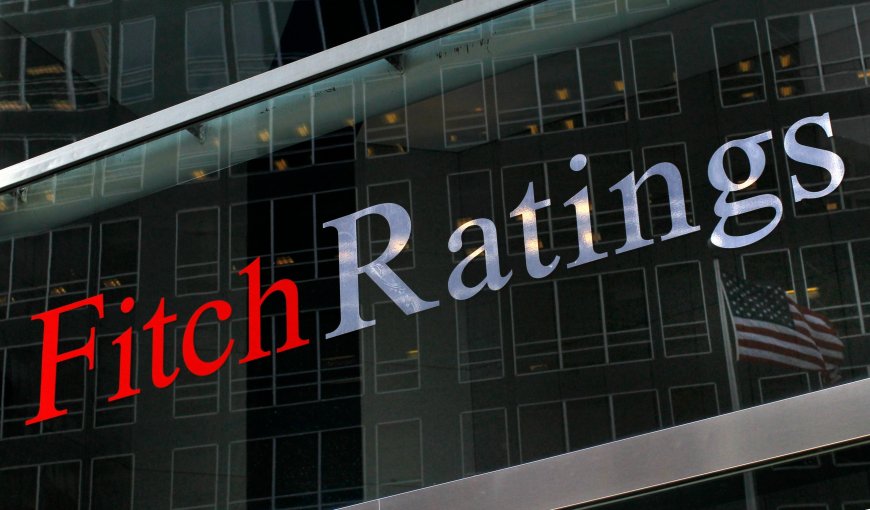U.S. Dollar Strengthens as Fitch Signals Possible Rating Downgrade, Sparking Default Concerns
U.S. Dollar Surges on Default Concerns as Fitch Signals Rating Downgrade. Stay updated on the global market impact and implications of U.S. debt ceiling talks.

The U.S. dollar exhibited substantial strength in European markets, surging to a two-month high amid escalating concerns over a possible U.S. default. The currency's notable upswing follows a cautionary signal from credit rating agency Fitch, indicating the potential for a rating downgrade.
During early trading on Thursday, the Dollar Index, a key gauge of the greenback against major currencies, registered a 0.2% increase, settling at 103.955. The index came within striking distance of its overnight peak of 104.05, marking its strongest level since mid-March. This surge underscores mounting apprehensions among investors regarding the U.S. government's efforts to address its colossal $31.4 trillion debt ceiling. Treasury Secretary Janet Yellen has raised alarms that the Department of the Treasury could exhaust its funds by early June if no resolution is reached.
With debt ceiling negotiations stalling, investors have sought refuge in the U.S. dollar, amplifying its upward trajectory. Fitch's decision to place the highly esteemed "AAA" rating of the United States on watch for a potential downgrade has further exacerbated global market jitters.
Fitch, in a recent report, expressed its expectation of a resolution to the debt limit before the "X-date." However, the agency also acknowledged an increased risk that the debt limit might not be raised or suspended in time, which could result in the U.S. government missing payments on certain obligations.
The dollar's ascent has been bolstered by the Federal Reserve's more assertive approach to monetary policy this year. Despite earlier efforts to tighten the economy, the U.S. has demonstrated remarkable resilience. The release of minutes from the Fed's latest meeting on Wednesday revealed a divergence of opinions among officials regarding the necessity of further interest rate hikes to tackle inflation. Nevertheless, the labor market and price pressures have proven to be more resilient than initially anticipated following the May meeting.
Investors eagerly anticipate the release of crucial data later today, including U.S. weekly jobless claims and a second estimate of the first-quarter GDP, which will provide valuable insights into the overall economic landscape.
Conversely, the euro to U.S. dollar exchange rate (EUR/USD) experienced a marginal decline of 0.1%, reaching 1.0739, approaching a two-month low. This downward trend followed the release of data indicating a slight contraction in Germany's economy during the first quarter of 2023, thus entering a technical recession.
While European Central Bank (ECB) officials have generally indicated their intention to address inflation through interest rate hikes, the region continues to grapple with sluggish growth. As a result, speculations abound regarding a potential shift in the ECB's stance. Investors will closely analyze speeches by Bundesbank head Joachim Nagel and ECB chief economist Philip Lane later in the session, hoping to glean insights into future policy decisions.
In the foreign exchange market, the British pound to U.S. dollar exchange rate (GBP/USD) experienced a modest decline, settling at 1.2363, nearing its lowest level since April 3. Similarly, the risk-sensitive Australian dollar to U.S. dollar exchange rate (AUD/USD) recorded a slight dip, reaching 0.6541.
The U.S. dollar to Japanese yen exchange rate (USD/JPY) witnessed a marginal decline to 139.45, just below its six-month high. This can be attributed to the yen's weakness, driven by the surge in two-year U.S. Treasury yields, reaching their highest levels since mid-March.
Furthermore, the U.S. dollar to Chinese yuan exchange rate (USD/CNY) observed a 0.1% increase, nearing a nearly six-month high at 7.0685. Concerns regarding a potential resurgence of COVID-19 cases have compounded worries surrounding China's decelerating economic growth.
Prior to Turkey's central bank announcing its latest monetary policy decision, the U.S. dollar to Turkish lira exchange rate (USD/TRY) rose by 0.1% to 19.9163. Market analysts anticipate that the central bank will maintain interest rates for the third consecutive month in an attempt to stabilize the lira, particularly with a presidential runoff imminent.
As global investors closely monitor developments surrounding the U.S. debt ceiling and forthcoming economic indicators, the trajectory of the U.S. dollar will remain under intense scrutiny, bearing significant implications for the wider financial landscape.






























































